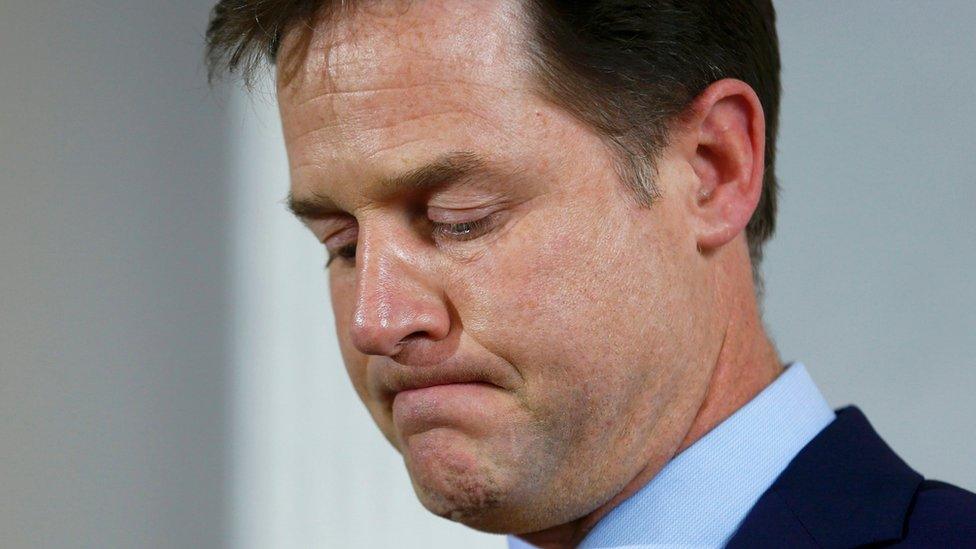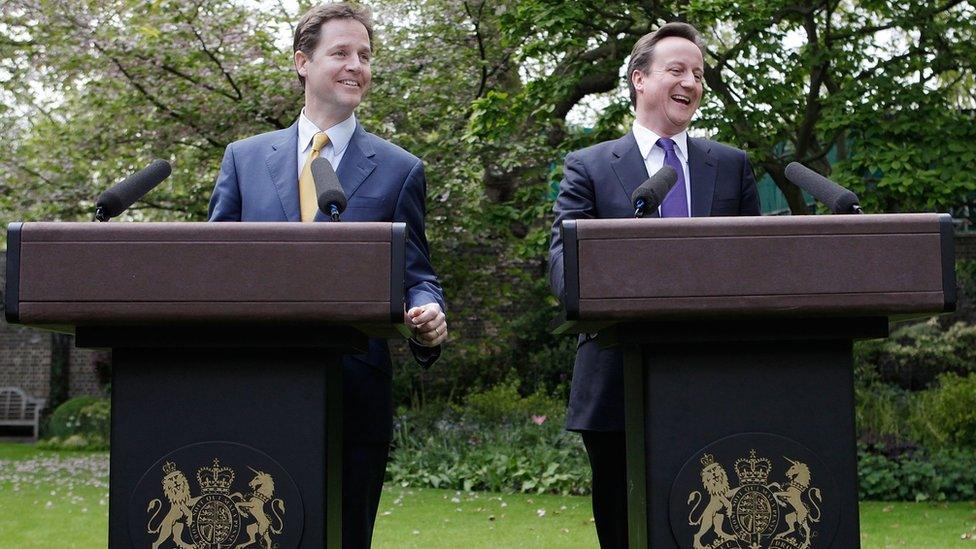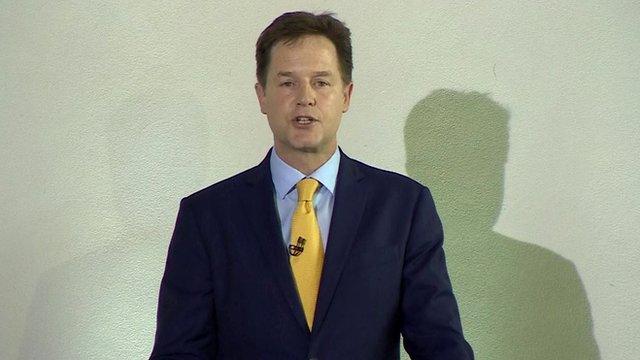Lib Dems blame general election defeat on 'perfect storm'
- Published

Nick Clegg resigned as Lib Dem leader in the aftermath of the general election
The Liberal Democrats' general election defeat was the result of a "perfect storm" including the tuition fees U-turn, a loss of activists, a weak Labour Party and an effective Tory strategy, a party review has concluded.
The Lib Dems went from 57 MPs in 2010 to eight in May, triggering the resignation of leader Nick Clegg.
The party's election review, external said its move into coalition with the Tories had not been "well understood".
It also blamed a "confusing" campaign.
After the Lib Dems joined the Tory-led coalition in 2010, Mr Clegg was made deputy prime minister, with several high-profile ministerial roles taken by Lib Dems.
The review said Lib Dem members agreed the party was right to join the coalition "in the national interest" but said it had "singularly failed at using our new position to garner support, retain and communicate our vision, or maintain a unique offer".
Ditching the party's key pledge to scrap tuition fees "significantly damaged" the Lib Dems' reputation and credibility, the review concluded, saying it was "almost incomprehensible" that 27 MPs voted in favour of an increase despite the "carefully-negotiated" coalition agreement allowing them to abstain.

The review criticised the Lib Dems' focus on "maintaining the appearance of a united government at almost any cost"
Other factors blamed for the loss of support were a lack of financial resources and campaigns with differing messages in different parts of the country as well as "ageing members and deflated morale" among activists.
"For some MPs, local leadership took a back seat to the demands of Westminster," it added.
When it came to the general election, the review said no party had a response to the Tories' message warning of a Labour alliance with the SNP, and criticised the Lib Dems' "fast-changing, complicated messages".
The review - carried out by members of the party's Campaigns and Communications Committee - made a string of recommendations to help the party fare better in any future coalition.
These include that Lib Dems should make it clear they will only automatically vote for legislation covered by the coalition agreement, and that the "wider party" should be represented in the negotiations.
Tim Farron, who replaced Mr Clegg as leader, said: "Blame and criticism can provide short term satisfaction, but do nothing for a future vision.
"This report is about setting a way forward, recognising the mistakes we made, and learning from them."
- Published22 September 2015

- Published8 May 2015
